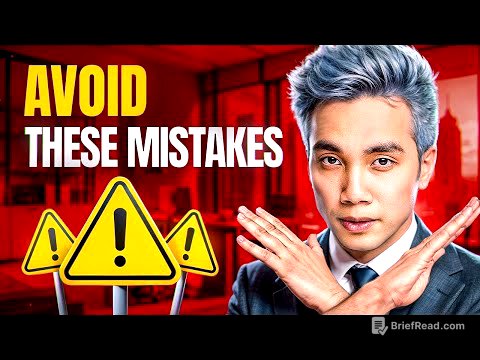TLDR;
This video discusses the rapid advancements in AI technology and their impact on established software companies. It covers Google's new AI model, "Nano Banana," which rivals GPT in image generation, and the challenges faced by Adobe as AI tools become more sophisticated and accessible. The video also touches on the broader trend of AI potentially overtaking software in various industries.
- Google's "Nano Banana" AI excels in image generation, maintaining consistency and understanding complex prompts.
- Adobe, a leader in creative software, faces challenges as AI offers simpler, more accessible alternatives.
- The rise of AI may lead to a shift where AI overtakes software, impacting various industries beyond just image and video editing.
GPT를 뛰어넘었다는 구글 '나노 바나나' [0:07]
Google's AI, specifically the Gemini 2.5 Flash image AI, known as "Nano Banana," is gaining recognition for surpassing previous AI models like ChatGPT5 in image generation. This AI stands out due to its ability to understand and execute complex prompts, maintaining consistency with the original image's details and identity. For example, it can change the color of clothing while preserving the original texture and patterns.
The AI's proficiency extends to combining images seamlessly and realistically inserting objects into scenes. It also demonstrates an understanding of user commands, even responding to more assertive or humorous prompts. Nano Banana has achieved the top position on the LM Arena leaderboard, a platform for evaluating AI models, indicating its superior performance and popularity within the AI community.
반토막난 포토샵 기업 어도비 [7:25]
Adobe, a dominant player in image and video editing software with products like Photoshop and Premiere Pro, is facing challenges due to the rise of AI-powered image and video editing tools. While Adobe's stock experienced significant growth during the rise of the video era, the emergence of AI tools that offer simpler, "one-click" solutions has led to a decline in its stock value. Despite Adobe's efforts to integrate AI into its software, the rapid advancements and accessibility of AI tools from tech giants like Google and Microsoft pose a threat to Adobe's market position.
Although Adobe remains a large company with substantial revenue, its future is uncertain as it competes with tech giants that offer AI tools for free or as part of broader service packages. The company's CEO emphasizes Adobe's AI innovations and revenue growth, but concerns persist about its ability to compete with larger companies that are rapidly advancing in the field of AI.
AI가 소프트웨어 기업들을 집어 삼키는 시대 [14:35]
The discussion shifts to the broader trend of AI potentially overtaking software in various industries. While the 2010s saw a surge in digital transformation, with software companies replacing traditional businesses, the current decade suggests that AI may be replacing software. AI's ability to process and learn from vast amounts of data gives it an advantage over traditional software, which relies on human input and programming.
This trend poses a challenge to software companies like Adobe, which must innovate and adapt to compete with AI-driven solutions. The key question is whether these companies can develop their own AI capabilities and create unique markets to survive in an AI-dominated landscape. Nvidia CEO Jensen Huang predicted in 2017 that AI would "eat" software, and current trends suggest that this prediction may be coming true.









